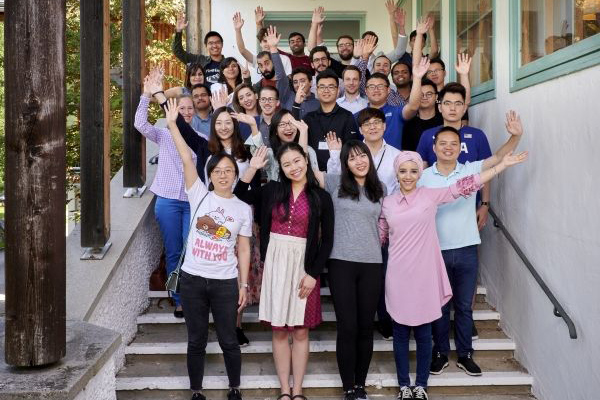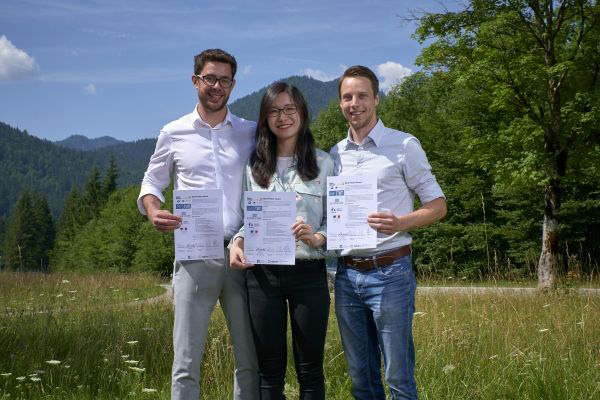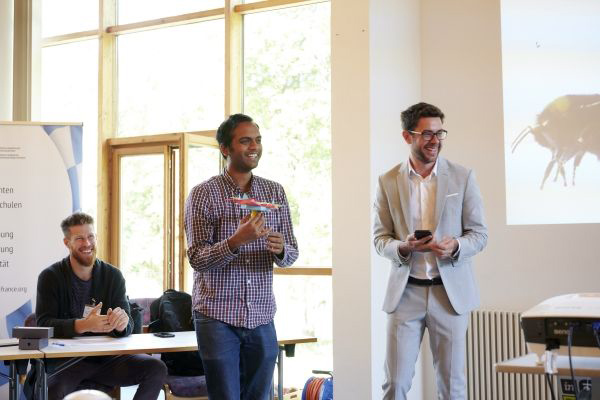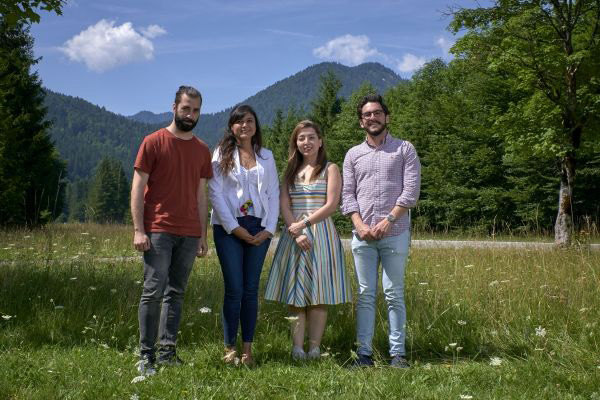BMW Summer School 2019 shines the spotlight on “Artificial Intelligence and Urban Living”
The potential of artificial intelligence (AI) for shaping mobility in tomorrow’s world and its impact on urban living took center stage at the BMW Summer School 2019. The interdisciplinary program for the event gave 35 up-and-coming scientists from 15 countries the chance to present their visions of AI-enhanced mobility – and to discuss the challenges that lie in wait with renowned experts from science and industry.
The BMW Summer School provides junior scientists from all over the world with a regular opportunity to discuss their research with top-class experts from both theoretical and practical backgrounds. This year’s get-together took place in Lenggries-Fall, Bavaria on 15 – 20 July 2019 under the auspices of the French consul general, and was staged as a collaboration between BMW, EURECOM, the Technical University of Munich (TUM) and BayFrance with the support of the German-French Academy for the Industry of the Future, the Franco-German University, and the Digitalist Group.
The BMW Summer School is a platform for dialogue with established professionals from academia and industry combined with the participants’ multidisciplinary backgrounds. This year, young researchers from the fields of computer science, mechanical engineering, electrical engineering, civil engineering, psychology, law and industrial design got together. “We see the BMW Summer School as a benchmark for cooperation between industry and universities“, said Hannemor Keidel, TUM representative for scientific relations with France.
AI is transforming mobility and urban living
As advances in the field of artificial intelligence have a major role to play in shaping the future of mobility, and the influence of AI extends far beyond mobility into day-to-day life, future production methods and business processes, AI affects society as whole. The interdisciplinary nature of the BMW Summer School 2019 highlighted social relevance of their research topics to the participants.
“Large cities worldwide are facing enormous challenges. Big Data and AI can give us better knowledge of the urban environment, and thus their potential beneficial applications are countless. This requires a new generation of researchers to think and collaborate across disciplines and it is great to see this kind of thinking fostered by the BMW Summer School”, said Carlo Ratti in his keynote speach.
Sharing scientific knowledge between theory and practice
To facilitate an intense exchange between the junior researchers and the experts from science and industry, the program for the BMW Summer School 2019 was organized into three main areas:
- Keynote track: Highlights from the keynote track, for example, included a talk by Carlo Ratti, who heads the Senseable City Lab at the Massachusetts Institute of Technology (MIT). There were also breakout sessions that gave the participants the chance to discuss specialized topics in small groups with academics and industry representatives. The issues up for debate included the use of AI for mobility services, design thinking methodology, quantum computer technology and ethical considerations relating to the interaction between human and artificial intelligence.
- Poster track: The poster track centered on the fields of research pursued by the up-and-coming scientists. The participants presented the ideas behind their current research and its objective to the multidisciplinary audience in a competition format.
- Lean startup machine: The third key element was the lean startup machine. The participants were split into mixed groups, asked to develop innovative product and service ideas based on their research topics under the guidance of agile design coaches and eventually present them to the audience in a short pitch. This competition gave the young researchers a realistic impression of what putting technological innovations into practice entails, be it in the form of a business idea or company startup. This year’s winning team of the startup pitch award created the concept for „APPetite“ – an AI empowered meal planner that helps its users to reduce the ecological impact of food waste.
In addition to the three main elements of the BMW Summer School 2019 program, the PhD students also seized the opportunity to share ideas informally among themselves and with the assembled science and business experts. This allowed them to gain some inspirational insights into the research work carried out in various disciplines and its practical application in the industrial sector. A pair of evening events involving Prof. Jörg Ott and Prof. Constantinos Antoniou from TUM and Dr. Markus Grüneisl, Head of Production Systems, Digitalisation and Operative Excellence at the BMW Group, helped maximize this exchange of knowledge.









